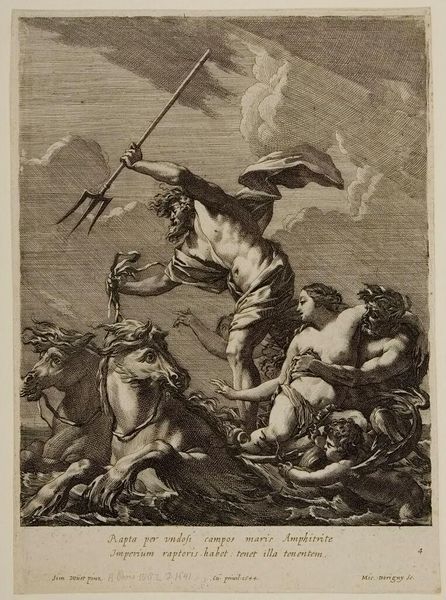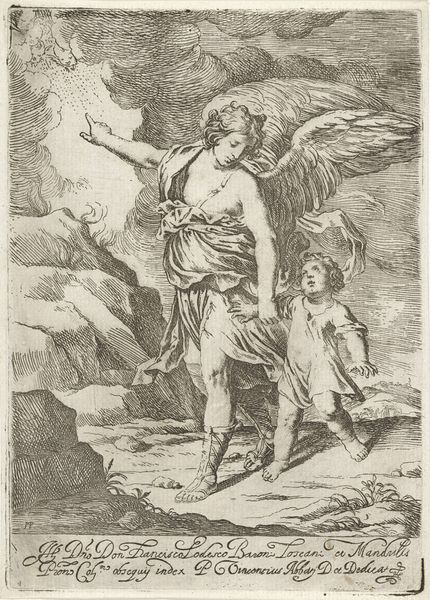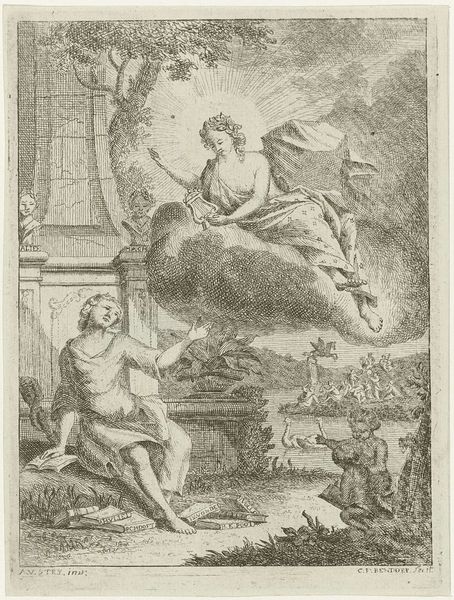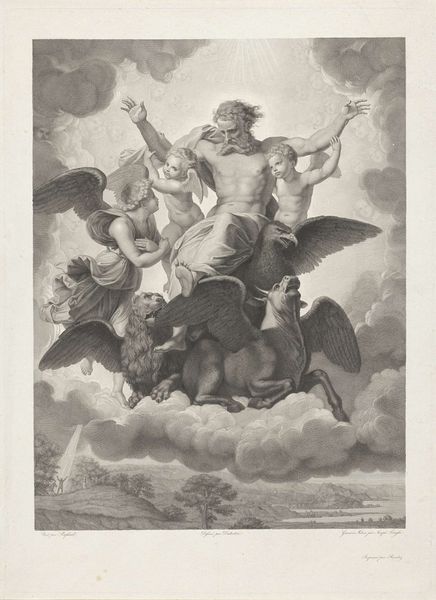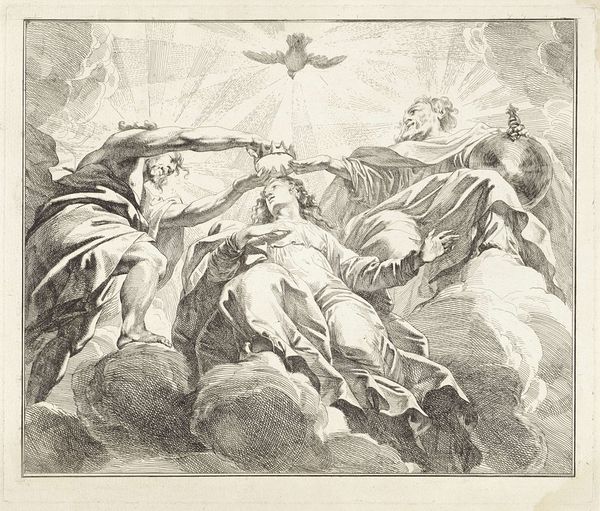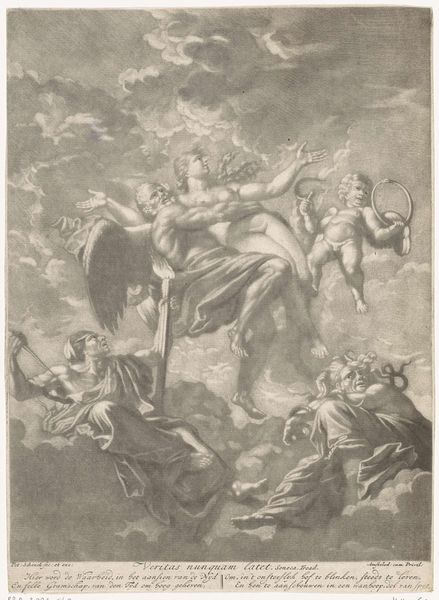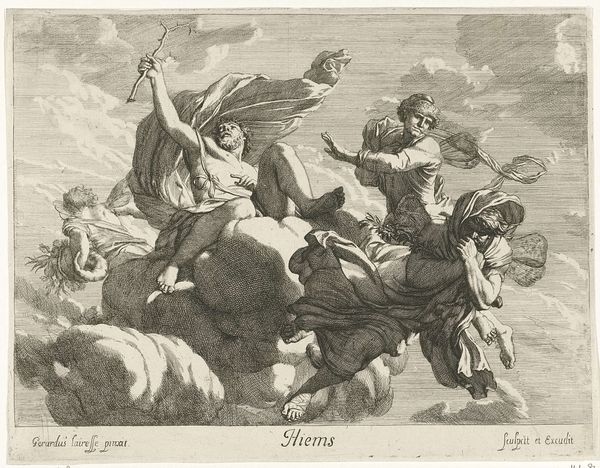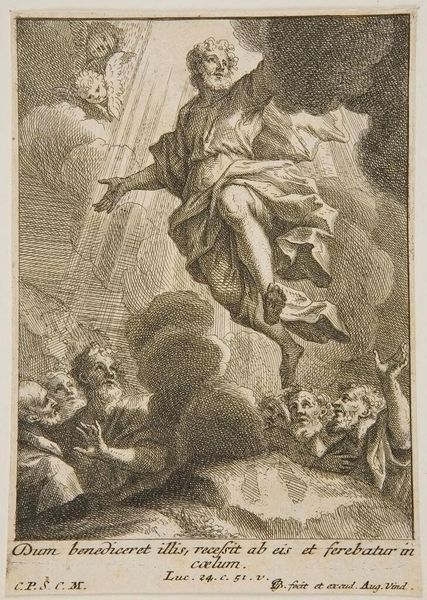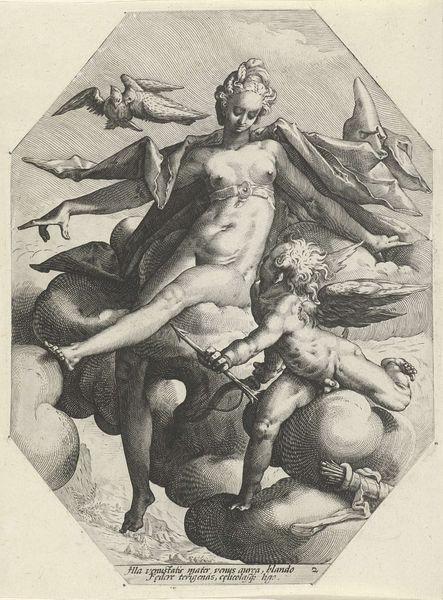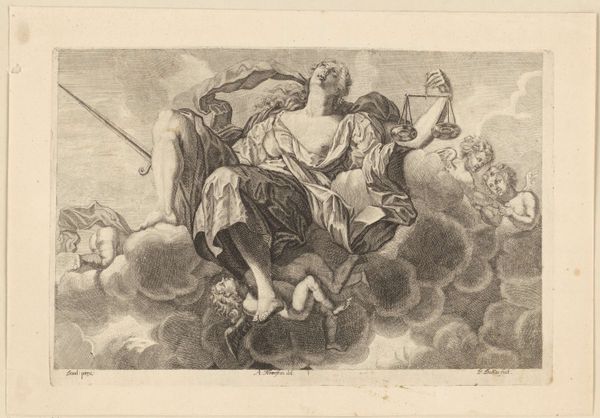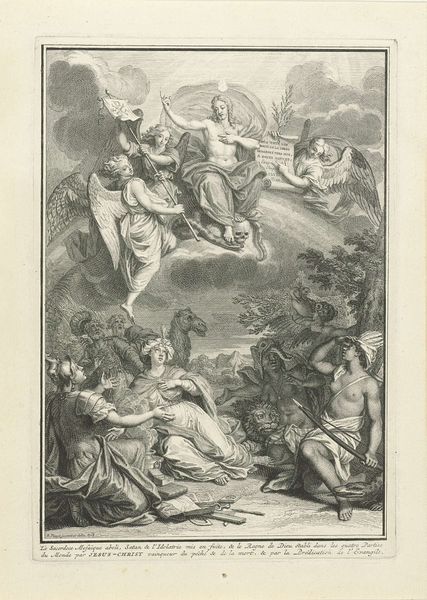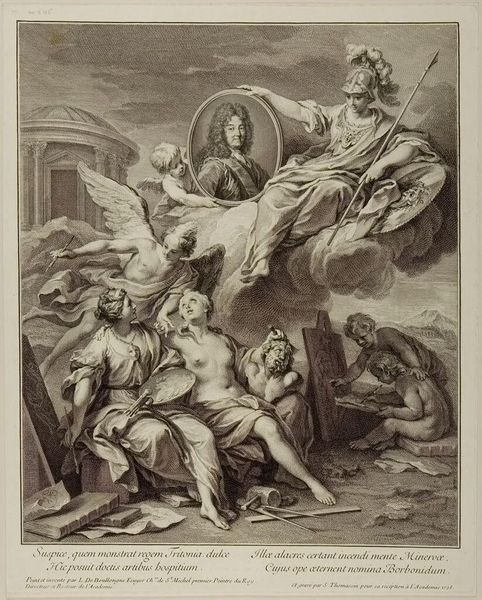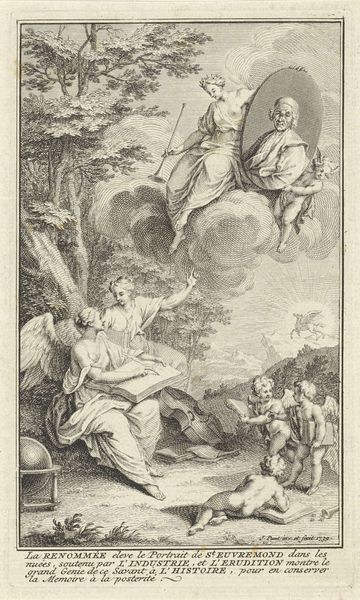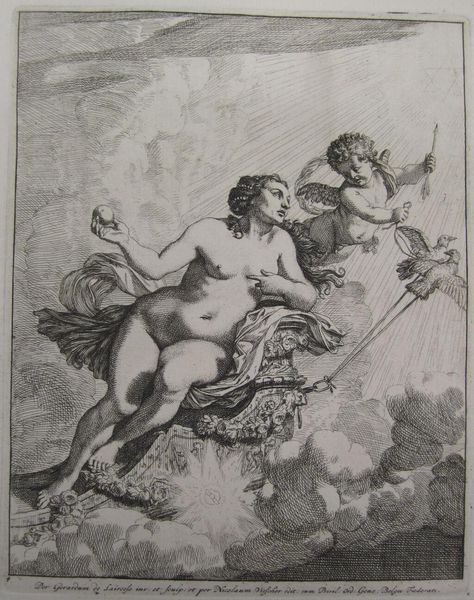
print, engraving
#
allegory
#
baroque
# print
#
figuration
#
history-painting
#
engraving
Dimensions: height 338 mm, width 408 mm
Copyright: Rijks Museum: Open Domain
Editor: Here we have Jan Punt's 1751 engraving, "H. Gregorius van Nazianze de Jongere," currently held at the Rijksmuseum. It strikes me as a rather dramatic scene; a bishop and cherub are confronting some sort of winged monster. How do you interpret this work? Curator: The dramatic tension speaks volumes about the social climate of the 18th century and the anxieties surrounding religious authority. What appears as a simple religious scene is in fact layered with commentary about power, the challenges to orthodoxy, and perhaps even the emerging Enlightenment ideals. Notice how the figure of Gregory is positioned, almost as if enacting a forceful cleansing. Editor: So, the winged monster could represent something beyond a literal demon? Curator: Precisely. Think of the monster as representative of heresy, dissent, or any force challenging the established order. The cherub’s instrument almost weaponizes faith, forcefully imposing doctrine upon dissent. How might we understand this as a visual commentary on the suppression of differing viewpoints during that time? Editor: That gives the piece so much more depth. It's not just a saint defeating evil but a statement about the suppression of thought. Curator: Yes. Consider, too, the artistic choices: the use of engraving allows for meticulous detail, which was an incredibly accessible and democratic way to disseminate ideas in the 1700’s. Disseminating whose ideas, though, and to what end? Whose perspectives are being amplified and whose are silenced? Editor: I never thought about that angle before! Seeing the print as a piece of propaganda really shifts how I view its place in history. Curator: Indeed. It serves as a powerful reminder that art doesn't exist in a vacuum. It is intrinsically linked to the social, political, and philosophical currents of its time. Editor: That’s definitely something I will take into account moving forward when assessing artwork. Thanks!
Comments
No comments
Be the first to comment and join the conversation on the ultimate creative platform.
